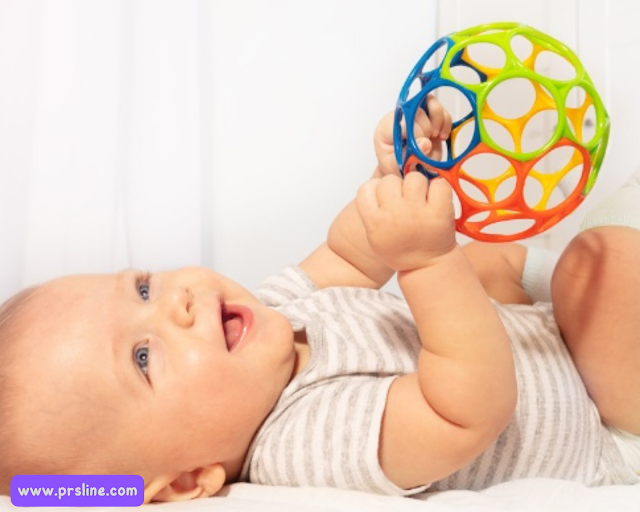Fun Ways to Entertain Your Newborn and Foster Development. Looking for ways to bond with your newborn and promote their development? Check out our guide on fun and engaging activities for newborns, including sensory play, reading time, tummy time, and more!
Fun Ways to Entertain Your Newborn and Foster Development
Are you a new parent looking for ways to bond
with your newborn while promoting their development? Look no further! Our team
has compiled a list of ten fun and engaging activities to help you create
meaningful experiences with your little one. From sensory play to reading time,
there's something for every baby in this comprehensive guide.
Our team has put together a comprehensive guide
on entertaining a newborn that will help you create meaningful experiences with
your little one. As parents ourselves, we understand the importance of bonding
with your newborn, and we've gathered some tried-and-true tips to help you do
just that.
Creating a Safe Environment
Before getting started with entertaining your
newborn, it's essential to create a safe environment. Make sure your baby is
comfortable, well-fed, and has a clean diaper before beginning any activities.
Also, ensure that any toys or objects are age-appropriate and don't pose a
choking hazard.
Sensory Play
Sensory play is an excellent way to engage your
newborn's senses and stimulate their development. Try different textures,
sounds, and colors to see how your baby responds. Some examples of sensory play
include:
1.
Touch and feel books
2.
Soft blankets or toys with different textures
3.
Music or white noise machines
4.
Mobiles with contrasting colors and shapes
5.
Soft, jingling toys
Reading to Your Newborn
Reading to your newborn is an excellent way to
promote language development and foster a love of books. Choose books with
bright, contrasting colors and simple, repetitive language. Make sure to hold
the book close to your baby's face so they can see the pictures and follow
along.
Tummy Time
Tummy time is an essential activity for your
newborn's physical development. It helps strengthen their neck muscles and
prepare them for crawling. Make sure your baby is well-rested and in a good
mood before starting tummy time. Place them on their tummy on a soft surface
and encourage them to lift their head and look around.
Babywearing
Wearing your baby in a carrier or wrap is an
excellent way to keep them close and engaged while you go about your day. It
can also be a great way to soothe a fussy baby. Choose a carrier that provides
good support for your baby's head and neck, and make sure it's properly
adjusted before use.
Conclusion
Entertaining a newborn doesn't have to be
complicated or expensive. With a little creativity and some age-appropriate
activities, you can create meaningful experiences with your baby and help
promote their development. Remember to always put safety first and have fun!
FAQs:
ü 1-What is sensory play and why is it important for
newborns?
ü Sensory play is any
activity that stimulates a baby's senses - touch, taste, smell, sight, and
sound. Examples include playing with different textures, exploring different
scents, and listening to music. Sensory play is important for newborns because
it helps with brain development, language development, and overall cognitive
development.
ü 2-How can I make
sure my baby is safe during tummy time?
ü To ensure your baby's
safety during tummy time, always supervise them and never leave them
unattended. Place them on a flat, firm surface such as a play mat or blanket,
and avoid placing them on soft surfaces such as a bed or couch. Also, make sure
your baby is awake and alert during tummy time.
ü 3-What are some
good books to read to my newborn?
ü Newborns enjoy books with
high-contrast images and bold, simple illustrations. Some good options include
"Black on White" by Tana Hoban, "Hello, Bugs!" by Smriti
Prasadam-Halls, and "Baby Faces" by Margaret Miller.
ü 4-How can
babywearing benefit both me and my baby?
ü Babywearing can provide
many benefits for both you and your baby. For your baby, it promotes physical
development, reduces crying and fussiness, and provides a sense of security and
comfort. For you, it allows for hands-free movement and bonding time with your
baby.
ü 5-Can I
incorporate sensory play into my baby's bath time routine?
ü Yes, bath time is a great
opportunity for incorporate sensory play! You can use bath toys with different
textures, colors, and shapes, or play music and sing songs to engage your
baby's senses.
ü 6-Is it safe to
wear my baby while doing household chores?
ü While babywearing can be a
convenient way to keep your baby close while doing chores, it's important to
prioritize safety. Make sure your baby is secure in the carrier and that their
head and neck are supported. Avoid any activities that could be dangerous or
require sudden movements.
ü 7-How often
should I engage in these activities with my newborn?
ü There is no set frequency
for engaging in these activities with your newborn. It's important to follow
your baby's cues and engage in activities when they seem alert and interested.
Start with shorter sessions and gradually increase the duration as your baby becomes
more accustomed to the activities.
ü 8-What are some
signs that my baby is overstimulated?
ü Signs of overstimulation
in newborns can include crying, fussiness, arching their back, and avoiding eye
contact. If you notice these signs, it may be time to take a break and give
your baby some quiet time.
ü 9-Are there any
age restrictions on these activities?
ü While some activities may
be better suited for certain developmental stages, there are generally no age
restrictions on these activities. Always follow your baby's lead and adjust
activities as needed to meet their developmental needs.
ü 10-Can I still
do these activities if my baby is premature or has special needs?
ü Yes, many of these
activities can be adapted to meet the needs of premature babies or babies with
special needs. It's important to consult with your baby's healthcare provider
to determine the best activities for their individual needs.
Sources:
1.
American Academy of Pediatrics. (2020). The Importance of Tummy Time.
https://www.healthychildren.org/English/ages-stages/baby/sleep/Pages/The-Importance-of-Tummy-Time.aspx
2.
Babywearing International. (n.d.). Babywearing Safety.
https://babywearinginternational.org/what-is-babywearing/babywearing-resources/babywearing-safety/
3.
Mayo Clinic. (2021). Newborn development: 0-3 months.
https://www.mayoclinic.org/healthy-lifestyle/infant-and-toddler-health/in-depth/newborn-development/art-20046556
Author:
The author of "panman" is a researcher on social issues, a freelance publisher in many websites and newspapers, and an expert in writing visual, audio and readable content.
In writing this article, artificial intelligence was used in terms of formatting and drafting in English in a way that makes it easier for the reader to read the article, and also to use some additional information, which should be alerted.



